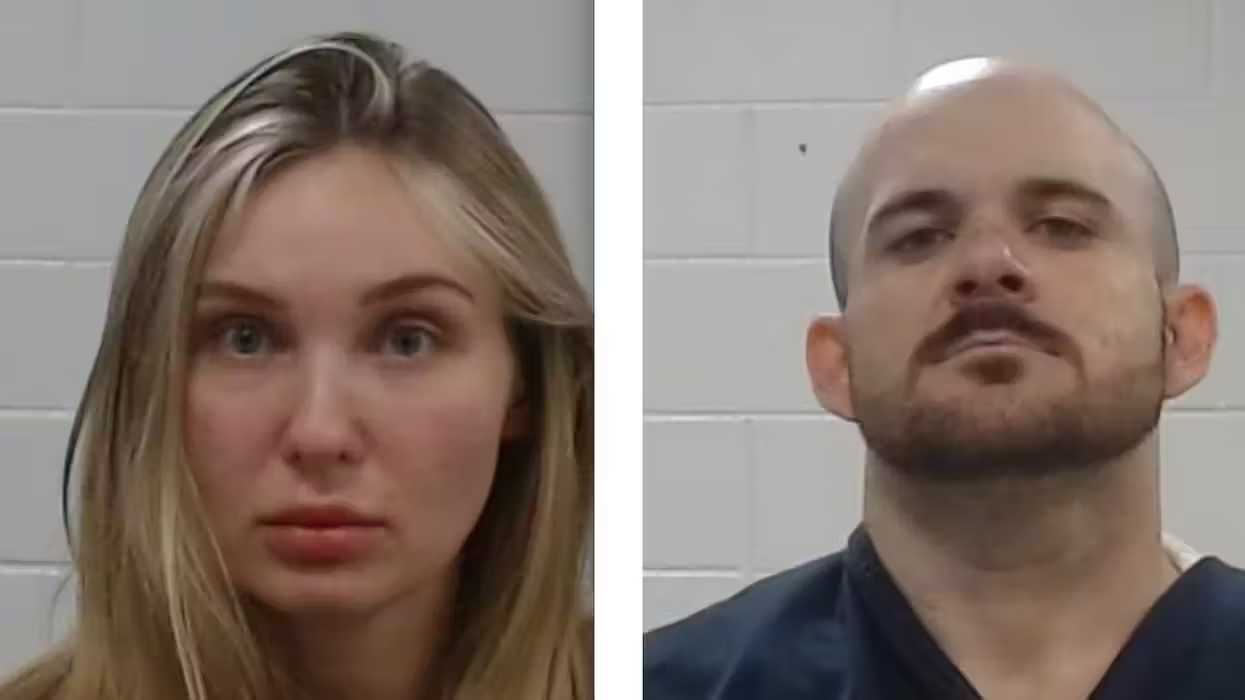
© 2025 Blaze Media LLC. All rights reserved.
Proposal: Presidential Candidates Submit Handwritten Copy of Constitution
September 09, 2010
The idea of the pledge is based on two examples: a biblical one and an historical one. The biblical passage of Deuteronomy 17:18-20, which instructs new kings to transcribe a copy of the law and keep it with him "all the days of his life," was part of the impetus. The other inspiration comes from historical education: writing something out by hand tends to impress it upon your memory, like most of us experienced with spelling words or math problems.
What if the president had to hand-write a copy of the Constitution before he took office?
That's the question Dr. David Corbin and Dr. Matthew Parks of The King's College-New York City are asking. Corbin is an associate professor of politics, while Parks is the assistant provost.
According to them, the presidential oath “to preserve, protect, and defend the Constitution of the United States" is one that should be taken very seriously. But "you can’t do this if you don’t know the Constitution or aren’t willing to submit to it," they say.
So, in a blog post on the First Things website, Corbin and Parks reveal a proposal that "each 2012 presidential candidate ... adopt the 'Constitution Pledge,' promising to present a hand-written copy of the Constitution to the Chief Justice as he rises to take the oath of office."
"We're constantly looking for reminders of just what it is that makes America exceptional,” Corbin told The Blaze. “And our constitution is one of those things.”
But presidents today are too preoccupied with “big things” such as sweeping reforms, he says. Rather than focus on grand projects that may or may not fail, he would rather future presidents understand their job description. The president’s, he says, is “ready made” in the Constitution.
“And how would we know that you understand the job description [of president]?” Corbin asks, “By you reading and writing it down."
The idea of the pledge is based on two examples: a biblical one and an historical one. The biblical passage of Deuteronomy 17:18-20, which instructs new kings to transcribe a copy of the law and keep it with him "all the days of his life," was part of the impetus. The other inspiration comes from historical education: writing something out by hand tends to impress it upon your memory, like most of us experienced with spelling words or math problems.
Currently, no large-scale “pledge” campaign is scheduled. Corbin envisions the idea taking off when citizens in primary states start asking candidates if they’ve taken “the pledge.” And while he says it may make “too much sense for it to happen,” he asks “why couldn’t it?”
For now, he and Parks will volunteer as the first interrogators: "Any takers?"
Want to leave a tip?
We answer to you. Help keep our content free of advertisers and big tech censorship by leaving a tip today.
Want to join the conversation?
Already a subscriber?
Jonathon M. Seidl is a former managing editor of Blaze News and a best-selling author and speaker. His next book, “Confessions of a Christian Alcoholic,” will be released on October 7, 2025.
Jonathon M. Seidl
Jonathon M. Seidl is a former managing editor of Blaze News and a best-selling author and speaker. His next book, “Confessions of a Christian Alcoholic,” will be released on October 7, 2025.
more stories
Sign up for the Blaze newsletter
By signing up, you agree to our Privacy Policy and Terms of Use, and agree to receive content that may sometimes include advertisements. You may opt out at any time.
Related Content
© 2025 Blaze Media LLC. All rights reserved.
Get the stories that matter most delivered directly to your inbox.
By signing up, you agree to our Privacy Policy and Terms of Use, and agree to receive content that may sometimes include advertisements. You may opt out at any time.






